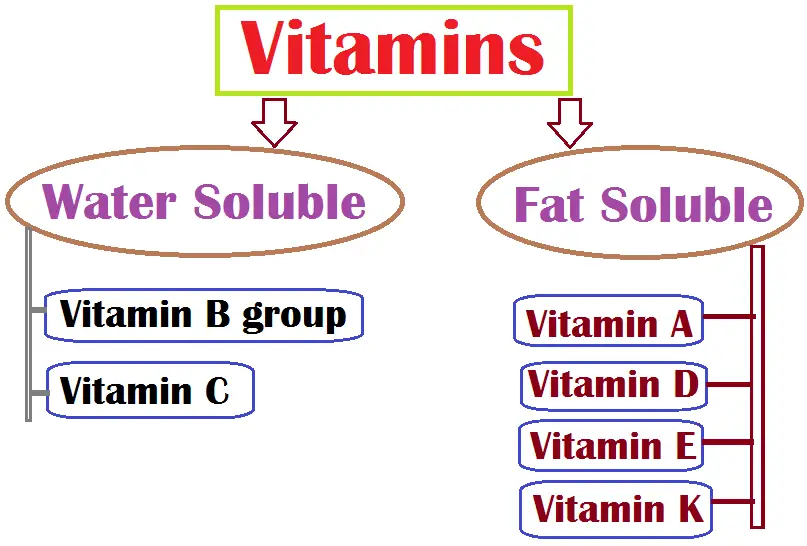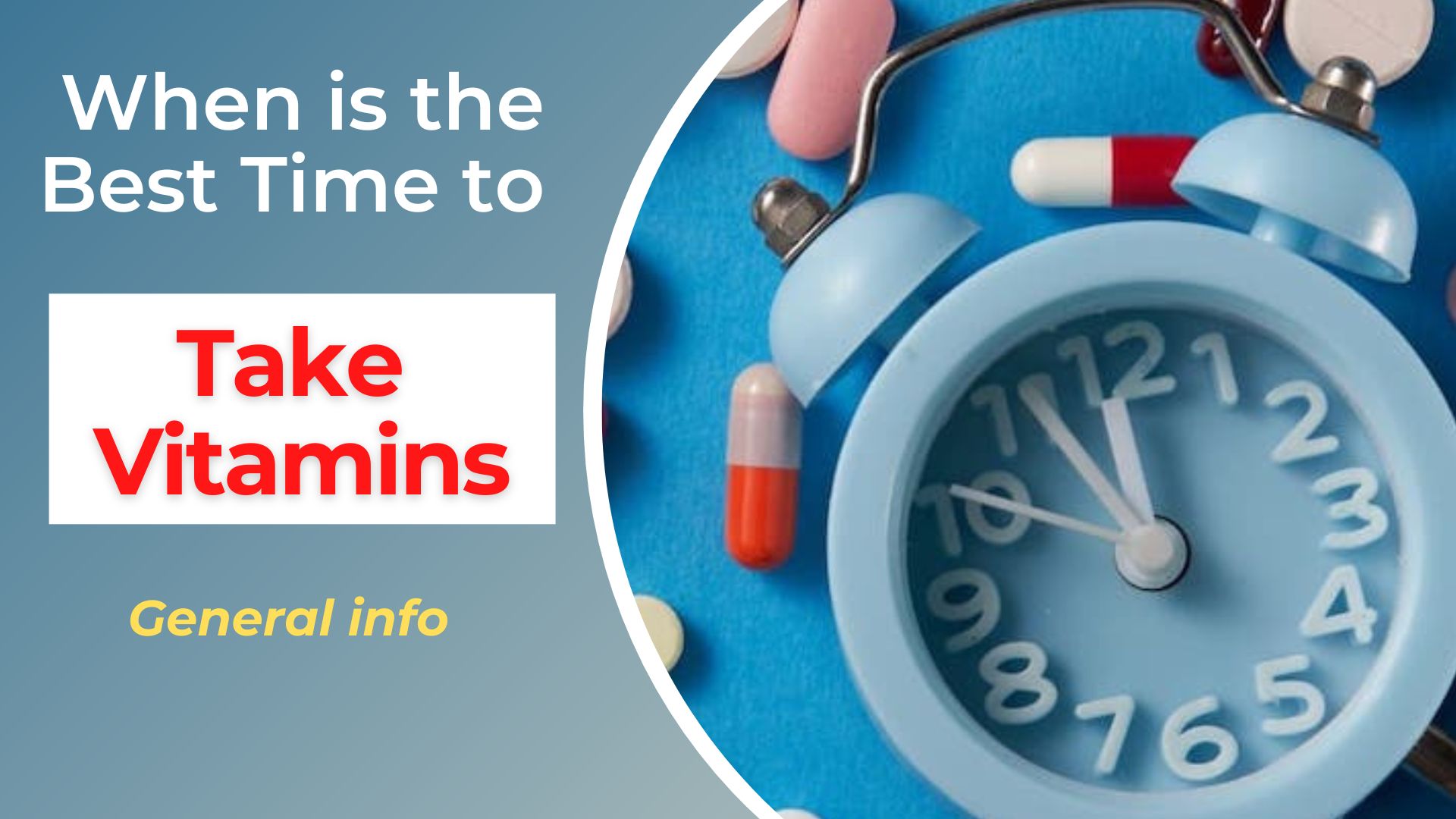There are a lot of different opinions out there when it comes to the best time to take vitamins.
Some people say that you should take them in the morning, while others say that you should take them at night. So, which is the right answer?
When is the best time to take vitamins?
In this blog post, we will explore this question in depth and provide you with some valuable information on when to take your vitamin and mineral supplements for optimal absorption and benefit.
All Vitamins Are Different
Vitamins are an essential part of our diet and they play a vital role in keeping our bodies healthy. However, with so many different vitamins out there, it can be difficult to know when is the best time to take them.
Some vitamins are best taken with food, while others should be taken on an empty stomach. And then there are some vitamins that can be taken either way. So, how do you know when is the best time to take vitamins?
The answer depends on the type of vitamin or mineral supplements you are taking.
Water-soluble versus Fat-soluble vitamins

There are two main types of vitamins: fat-soluble and water-soluble.
Fat-soluble vitamins are absorbed by the body through dietary fats. They include vitamins, A, D, E, and K and are stored in the liver and fatty tissues. They can be found in foods like butter, eggs, and fatty fish.
Water-soluble vitamins, on the other hand, dissolve in water and are not stored by the body. They include vitamins B and C, and can be found in fruits, vegetables, and grains.
If you are taking a water-soluble vitamin like vitamin C or B complex, it is best to take it with water.
This will help your body to absorb the vitamin more effectively.
If you are taking a fat-soluble vitamin like vitamin D, it is best to take it with food that contains some healthy fats (such as a handful of nuts).
When is the best time to take vitamins?
Now that we know the difference between water-soluble and fat-soluble vitamins, let’s take a closer look at when is the best time to take each type of vitamin.
Water-Soluble Vitamins in the morning
As we mentioned before, water-soluble vitamins such as Vitamin C and B-complex Vitamins are best taken with food. This is because these types of vitamins are not stored in our bodies and need to be replenished on a daily basis.
When taken with food, water-soluble vitamins are more likely to be absorbed by our bodies and used effectively. So, if you’re looking to get the most out of your water-soluble vitamins, take them with a meal or snack.
Generally speaking you’ll want to take your water-soluble vitamins earlier in the day.
- Vitamin C boosts your immune system so you want your body to have access to it throughout the day.
- B vitamins are essential for energy levels so you’ll want to take them in the morning or early afternoon.
So, when do you normally have your first drink of water? If you’re like many people, it’s probably first thing in the morning.
This means that taking your water-soluble vitamins in the morning is a great way to start your day and ensure that your body is getting the nutrients it needs.
Fat-Soluble Vitamins in the evening
On the other hand, fat-soluble vitamins like Vitamin A, D, E and K are best taken with a meal that includes some healthy fats. This is because these types of vitamins are stored in our bodies and need to be taken with dietary fats in order to be absorbed properly.
When taken with a fatty meal, fat-soluble vitamins are more likely to be absorbed by our bodies and used effectively. So, if you’re looking to get the most out of your fat-soluble vitamins, take them with a meal or snack that contains healthy fats.
Generally speaking you’ll want to take your fat-soluble vitamins later in the day because your body repairs itself while you are asleep.
- Vitamin A is important for vision so when your body is repairing itself at night you’ll want these vitamins to be available.
- Vitamins D and K are essential for bone health so you’ll want these vitamins to be available when your body is repairing while you’re asleep.
So, when do you normally have your last meal of the day? If you’re like many people, it’s probably dinner time or a snack afterwards.
This means that taking your fat-soluble vitamins in the evening is a great way to end your day and ensure that your body is getting the nutrients it needs.
However, be sure that this last meal or snack of the day contains some healthy fats to aid with absorption and digestion too!
Even so, please remember that your body stores fat-soluble vitamins stores for more than 24 hours.
So as long as you are eating these vitamins daily then “when” you take these vitamins is not super critical!
Now let’s look at some specific vitamin supplements and their timing.
Tell me the best time to take …
Vitamin C
Vitamin C is a water-soluble vitamin that is best taken with food. This vitamin is important for immune health, so it’s a good idea to take Vitamin C supplements early in the day.
B Vitamins
B vitamins are water-soluble vitamins, so the best time to take them is with a meal or snack. This will help your body to absorb the vitamin more effectively.
You may want to take B vitamins in the morning or early afternoon as they can give you a boost of energy.
Vitamin A
Vitamin A is a fat-soluble vitamin, so the best time to take it is with a meal or snack that contains healthy fats.
This will help your body to absorb the vitamin more effectively. You may want to take a Vitamin A supplement in the evening as it can help your body repair itself while you sleep.
Vitamin D
Vitamin D is important because it helps your body absorb calcium. Fun fact: Vitamin D is also the most popular supplement bought in America too.
Vitamin D is a fat-soluble vitamin, so the best time to take it is with a meal or snack that contains healthy fats. This will help your body to absorb the vitamin more effectively.
You may want to take a Vitamin D supplement in the evening as it can help your body repair itself while you sleep.
Vitamin D pairs well with calcium so if you’re looking to improve your bone health then you should take them together.
Vitamin E
Your body needs Vitamin E because it’s an antioxidant.
This vitamin scavenges free radicals, which damage cells. Free radicals are produced when your body breaks down food or is exposed to environmental toxins, like cigarette smoke and pollution. When free radicals build up, they can cause health problems, such as heart disease and cancer.
Vitamin E is a fat-soluble vitamin, so the best time to take it is with a meal or snack that contains healthy fats. This will help your body to absorb the vitamin more effectively. You may want to take Vitamin E in the evening as it can help your body repair itself while you sleep.
This vitamin pairs well with Vitamin C, so you may want to take them together.
Vitamin K
Vitamin K is important because it helps your blood to clot.
It’s also a fat-soluble vitamin, so the best time to take it is with a meal or snack that contains healthy fats. This will help your body to absorb the vitamin more effectively.
Vitamin K pairs with Vitamin D to help your body absorb calcium. So, if you are taking Vitamin D, you may want to take a Vitamin K supplement at the same time.
What time should I take minerals?
So far we’ve just been talking about vitamins mostly. But what about minerals such as calcium and iron?
Generally speaking minerals are more likely to cause an upset stomach.
So, you’ll want to take minerals with a meal or snack. This will help to minimize the odds of an upset stomach.
Like fat-soluble vitamins, the time of day doesn’t really matter when it comes to taking minerals as our bodies store them for more than 24 hours.
Calcium
Your body needs calcium because it helps to build strong bones and teeth.
If you have trouble with an upset stomach when taking calcium then you might want to try a citrate supplement instead.
Citrate is easier on the stomach than other forms of calcium. If you don’t have any trouble with your stomach then the timing of your calcium supplement doesn’t really matter.
Iron
Iron is important because it helps our blood cells carry oxygen.
Too much of this mineral can cause constipation and nausea so it’s best to take it with a meal or snack. This will help to minimize these side effects.
You might also want to consider taking an iron supplement with Vitamin C as this can help with absorption.
If you have trouble with an upset stomach when taking iron, even when you take it with a meal, then you might want to try a chelated supplement instead.
Chelated iron is easier on the stomach than other forms of iron. If you don’t have any trouble with your stomach then the timing of your iron supplement doesn’t really matter.
Please note that folic acid is similar to iron and is one of the most important prenatal vitamins.
Magnesium
Magnesium combines with calcium and regulates blood pressure.
Overdosing this mineral can cause diarrhea so it’s best to take it with a meal or snack. This will help to minimize this side effect.
You might also want to consider taking magnesium at night as it can help you relax and improve your sleep quality.
If you have trouble with an upset stomach when taking magnesium, even when you take it with a meal, then you might want to try a glycinate supplement instead.
Glycinate is easier on the stomach than other forms of magnesium. If you don’t have any trouble with your stomach then the timing of your magnesium supplement doesn’t really matter.
Potassium
Potassium helps to regulate blood pressure and is important for heart health.
Overloading this mineral can cause stomach upset so it’s best to take it with a meal or snack. This will help to minimize this side effect.
You might also want to consider taking potassium at night as it can help you relax and improve your sleep quality.
If you have trouble with an upset stomach when taking potassium, even when you take it with a meal, then you might want to try a citrate supplement instead.
Citrate is easier on the stomach than other forms of potassium. If you don’t have any trouble with your stomach then the timing of your potassium supplement doesn’t really matter.
Tell me the best time to take multivitamins?
It is recommended taking your multivitamins at bedtime before eating to ease the absorption.
When Best Time Take Vitamins Conclusion
The best time to take vitamins really depends on the type of vitamin. Water-soluble vitamins should be taken in the morning, while fat-soluble vitamins should be taken at night.
But don’t think too hard!
It’s more important you get your daily recommended allowances for vitamins that stress about the time in which you get your vitamin or mineral supplement!
If you’re not sure about vitamin supplements, check out our post on the Ultimate Guide to Supplements for more information about dietary supplements.
And as always, consult with a doctor if you have any questions about whether or not supplements are right for you. Thanks for reading!



